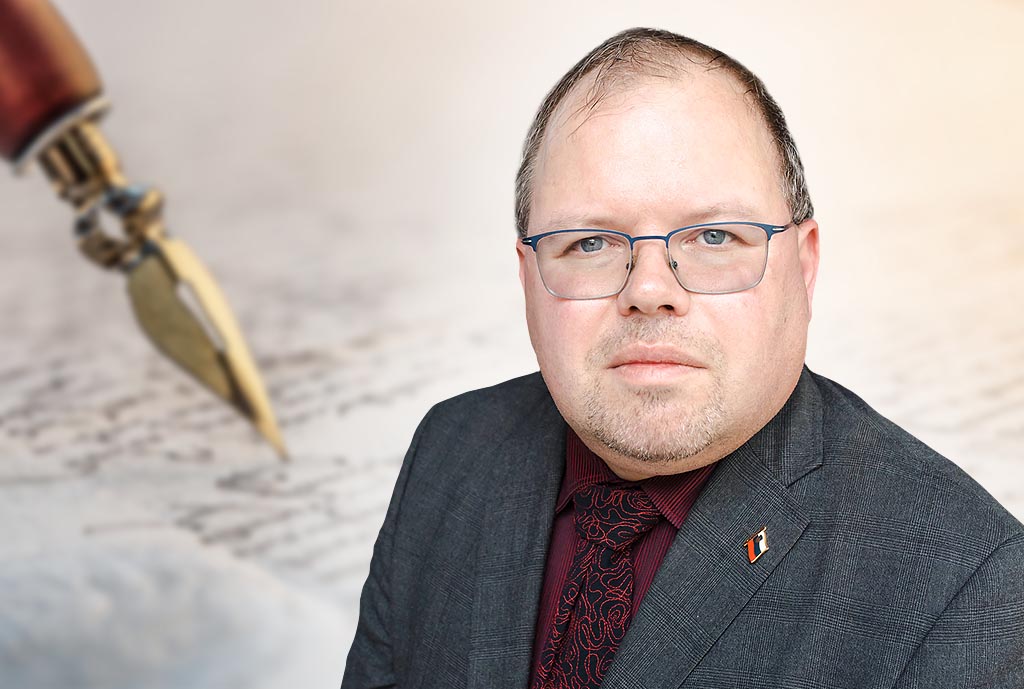By: Gašper Blažič
The debate about the totalitarian regimes of the 20th century seems somewhat predictable and dull nowadays. Many might dismiss it, saying that we cannot change the past, and these debates will not improve our situation – if anything, they will only deepen the divisions among us. Such stereotypical views are understandable in their own way, but that does not mean they are true or justified. Especially because we see how unresolved consequences of totalitarianism strongly affect Slovenia’s present and future.
The well-known Jewish philosopher Hannah Arendt once wrote: “The sad truth is that the greatest evils are committed by those who never decide whether they want to be good or evil.” In other words, they are “somewhere in between”. Perhaps Arendt’s statement is also key to understanding why the world’s greatest criminals are so often excused and portrayed as normal people. For example, Stalin was known to show genuine emotions, which do not befit a mass murderer – yet in the next moment, he could issue an order that ended the lives of a great number of people. Josip Broz Tito was admired as a genuine person with a “big heart”. Marjetka Kidrič remembers her father, Boris Kidrič, as “a wonderful and extremely warm father”. She adds: “At home, he was calm, cheerful, and not at all strict. I never heard him raise his voice, let alone scold my sister or me harshly.” (Source: Svobodna beseda, July 2024, p. 8). Mind you, we are talking about the same Boris Kidrič, one of the instigators of revolutionary massacres, who as early as 1941 ordered the suppression of the “White Guard” (even though the first village militia was not formed until mid-1942!) and is responsible for the deaths of at least 15,000 Slovenians. It is interesting to note that Kidrič was saved from a Viennese prison through the mediation of a priest and professor, Lambert Ehrlich. Kidrič “thanked” him by having him murdered in 1942.
The tragedy of totalitarian regimes was not that they were led by consciously evil people, but rather by those who lived double lives and built their personal moral convictions in the realm “beyond good and evil”, in apathy and relativism. This means that they precluded “the highest good” in advance and lived under the illusion of their morality or the pursuit of good within the limits of their own comfort. One of the giants of Russian literature, F. M. Dostoevsky, expressed this old truth in the phrase “If there is no God, everything is permitted,” implying that excluding God essentially legitimises ethical scepticism and relativism, although this question goes beyond the level of ethics. But if the dictatorship of relativism prevails – as warned by the late Pope Benedict XVI, and before him, his predecessor Saint John Paul II – it follows that man puts himself in the place of God, and thus man becomes a beast, as there is no longer an objective foundation for morality. By the way, do you still remember Milan Kučan’s famous thesis about “multiple truths”?
This is, of course, only one side of the coin in the story of totalitarianism. Their role is far from over, as their offshoots appear again and again, often under the guise of (apparent) goodness. The road to hell is paved with good intentions, as the saying goes. Do not be surprised if one day you are subjected to repression in the name of equality, dignity, and the fight against hate speech. Or if some Putin sympathiser tries to brainwash you with the thesis that the (Western) media are collectively lying about Ukraine and that no one wants to hear the truth or accept Putin’s “good intentions” under the guise of his supposedly genuine Christian devotion. But the true beauty of faith, which our bishops spoke of on the Feast of the Assumption, is not expressed only in customs, outward postures, and popular devotions (which can also be a bad habit!), but in what we carry in our hearts. Therefore, we can recognise the authenticity or inauthenticity of goodness by spirit. Or as Saint Augustine wrote: “Love and do what you will.” It is precisely this creative freedom in love (Greek: agape) in collaboration with sound reason that is the best defence against all forms of totalitarianism.
“I know your deeds, that you are neither cold nor hot. Oh, if only you were cold or hot! But because you are lukewarm – neither hot nor cold – I am about to spit you out of my mouth.” (Revelation 3:15-16)

